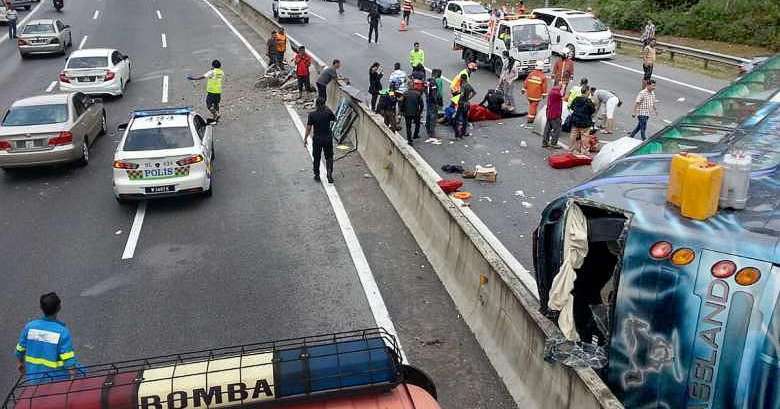The average road fatality rate in Malaysia is 17.7 deaths – every day.
That means for every single day that Pakatan Rakyat blocks the implementation of the Automated Enforcement System (AES) in the four states that it rules, several deaths take place on the roads that could easily have been prevented.
Last weekend, for instance, a woman and her granddaughter were among five people killed in two road accidents in Jitra and in George Town.
These needless tragedies highlight once again the need for more effective monitoring of traffic and for speedy justice to motorists who drive dangerously.
There is therefore no room for Pakatan Rakyat’s strange obstinacy on the issue while people continue to die in the streets. Yet the coalition’s leaders continue to criticise the AES, despite it helping road safety by using cameras to catch drivers who break speed limits and jump traffic lights.
An expert in intelligent transport systems has pointed out that speed cameras can reduce the fatality rate at killer stretches by at least 35 per cent.
Universiti Teknologi Mara Surveying Science and Geomatics Department lecturer Dr Khoiri Mohd Dimyati said speed cameras in other countries had successfully reduced road fatalities by enhancing the perception of motorists that they would be booked for speeding.
There are 90 countries around the world that have implemented similar electronic systems, especially in developed countries such as the United Kingdom, France, Germany, Australia, Singapore, and the United States.
Khoiri said studies in countries using AES showed that the system succeeded in reducing accidents and fatalities.
In France, for instance, the number of deaths on its roads dropped by 27 per cent within just three years of implementation. In Kuwait, the rate of traffic accidents reduced by 48 per cent, and in Germany, 80 per cent of road users are now complying with traffic laws in the designated AES locations.
“I believe AES can reduce our road fatalities by 30 per cent to 35 per cent. If the AES can work in other countries, it can work here too,” Khoiri told The Star Online.
Over a month has gone by since the AES was implemented at 14 locations in Perak, Selangor, Putrajaya and KL, and the number of drivers caught for traffic violations has already fallen by more than half.
This proves the success of the system in deterring violations. Yet Pakatan, instead of supporting this initiative, has turned it into a political circus, wasting much time and energy trying to stall what is clearly a modern, life-saving measure.
The AES is being implemented by two companies chosen after a detailed tendering process. According to the agreement, the companies have to set up and manage the traffic system at their own cost for five years, after which they would have to surrender the entire system for free to the federal government which can then call for fresh tenders.
This is a win-win for Malaysia. No public money has been invested in the project, the system is managed by two companies for free, and traffic violations come down. What is there in this for Pakatan to complain about?
Cameras are planned at another 817 locations in Phase Two of the project, which involves a nationwide implementation. Except in Penang, of course, along with Selangor, Kedah and Kelantan, where the Pakatan state governments have rejected the system.
As a result, 331 out of the 817 cameras planned nationwide – around 40 per cent – will not be installed because of Pakatan’s political manoeuvres.
If Pakatan claims to be against corruption, why is it then criticising a system that does precisely that?
After all, the AES takes out the human element in nabbing traffic violators as the system is effective and impersonal. It also removes the possibility of corruption and bribes when a policeman has to fine a motorist.
The Pakatan governments have unfortunately forgotten their responsibility to curb violations, happily going along with the “people” when it comes to an initiative by the federal government.
What is next? Will DAP, PKR and PAS also support the people if they refuse to pay income tax?
In its haste to criticise a measure by the Barisan Nasional government, Pakatan shouldn’t forget that there are certain issues which should not be politicised, such as saving people’s lives.

